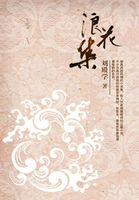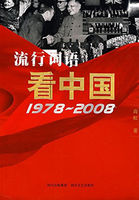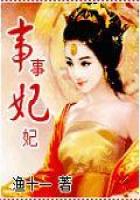It was largely due to the work of this Congress- i onal Committee, supported by the large number of states which had been won for suffrage, that we secured such an excellent vote in the Lower House of Congress on the bill to amend the national Con- s titution granting suffrage to the women of the United States. This measure, known as the Susan B. Anthony bill, had been introduced into every Congress for forty-three years by the National Woman Suffrage Association. In 1914, for the first time, it was brought out of committee, debated, and voted upon in the Lower House. We received 174 votes in favor of it to 204 against it. The previous spring, in the same Congress, the same bill passed the Senate by 35 votes for it to 33 votes against it.
The most interesting features of the Washington convention of 1913 were the labor mass-meetings led by Jane Addams and the hearing before the Rules Committee of the Lower House of Con- g ress--the latter the first hearing ever held be- f ore this Committee for the purpose of securing a Committee on Suffrage in the Lower House to correspond with a similar committee in the Sen- a te. For many years we had had hearings be- f ore the Judiciary Committee of the Lower House, which was such a busy committee that it had neither time nor interest to give to our measure. We there- f ore considered it necessary to have a special com- m ittee of our own. The hearing began on the morning of Wednesday, the third of December, and lasted for two hours. Then the anti-suffragists were given time, and their hearing began the following day, continued throughout that day and during the morning of the next day, when our National Association was given an opportunity for rebuttal argument in the afternoon. It was the longest hear- i ng in the history of the suffrage movement, and one of the most important.
During the session of Congress in 1914 another strenuous effort was made to secure the appoint- m ent of a special suffrage committee in the Lower House. But when success began to loom large be- f ore us the Democrats were called in caucus by the minority leader, Mr. Underwood, of Alabama, and they downed our measure by a vote of 127 against it to 58 for it. This was evidently done by the Democrats because of the fear that the united votes of Republican and Progressive members, with those of certain Democratic members, would carry the measure; whereas if this caucus were called, and an unfavorable vote taken, ``the gentlemen's agree- m ent'' which controls Democratic party action in Congress would force Democrats in favor of suffrage to vote against the appointment of the committee, which of course would insure its defeat.
The caucus blocked the appointment of the com- m ittee, but it gave great encouragement to the suf- f ragists of the country, for they knew it to be a tacit admission that the measure would receive a favor- a ble vote if it came before Congress unhampered.
Another feature of the 1913 convention was the new method of electing officers, by which a primary vote was taken on nominations, and afterward a regular ballot was cast; one officer was added to the members of the official board, making nine instead of eight, the former number. The new officers elected were Mrs. Breckenridge of Kentucky, the great-granddaughter of Henry Clay, and Mrs.
Catherine Ruutz-Rees of Greenwich, Connecticut.
The old officers were re-elected--Miss Jane Addams as first vice-president, Mrs. Breckenridge and Mrs.
Ruutz-Rees as second and third vice-presidents, Mrs. Mary Ware Dennett as corresponding secre- t ary, Mrs. Susan Fitzgerald as recording secretary, Mrs. Stanley McCormack as treasurer, Mrs. Joseph Bowen of Chicago and Mrs. James Lees Laidlaw of New York City as auditors.
It would be difficult to secure a group of women of more marked ability, or better-known workers in various lines of philanthropic and educational work, than the members composing this admirable board.
At the convention of 1914, held in Nashville, several of them resigned, and at present (in 1914) the ``National's'' affairs are in the hands of this in- s piring group, again headed by the much-criticized and chastened writer of these reminiscences:
Mrs. Stanley McCormack, first vice-president.
Mrs. Desha Breckenridge, second vice-president.
Dr. Katharine B. Davis, third vice-president.
Mrs. Henry Wade Rogers, treasurer.
Mrs. John Clark, corresponding secretary.
Mrs. Susan Walker Fitzgerald, recording secretary.
Mrs. Medill McCormack, }
} Auditors Mrs. Walter McNabb Miller, of Missouri }
In a book of this size, and covering the details of my own life as well as the development of the great Cause, it is, of course, impossible to mention by name each woman who has worked for us-- t hough, indeed, I would like to make a roll of honor and give them all their due. In looking back I am sur- p rised to see how little I have said about many women with whom I have worked most closely--Rachel Foster Avery, for example, with whom I lived happily for several years; Ida Husted Harper, the historian of the suffrage movement and the biographer of Miss Anthony, with whom I made many delightful voy- a ges to Europe; Alice Stone Blackwell, Rev. Mary Saffard, Jane Addams, Katharine Waugh McCul- l ough, Ella Stewart, Mrs. Mary Wood Swift, Mrs.
Mary S. Sperry, Mary Cogshall, Florence Kelly, Mrs. Ogden Mills Reid and Mrs. Norman White- h ouse (to mention only two of the younger ``live wires'' in our New York work), Sophonisba Breck- e nridge, Mrs. Clara B. Arthur, Rev. Caroline Bart- l ett Crane, Mrs. James Lees Laidlaw, Mrs. Raymond Brown, the splendidly executive president of our New York State Suffrage Association, and my bene- f actress, Mrs. George Howard Lewis of Buffalo. To all of them, and to thousands of others, I make my grateful acknowledgment of indebtedness for friend- s hip and for help.















